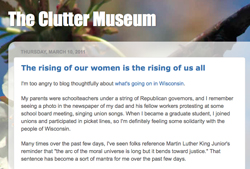I.
I recently happened again upon W. H. Auden’s poem “In Memory of W. B. Yeats.” It’s been a favorite of mine since high school, but somehow it had fallen off my radar. No matter what one thinks of Yeats—I happen to be a fan of his poetry, but not his later politics—Auden’s poem is a tremendous elegy for a poet (any poet). It begins
He disappeared in the dead of winter:
The brooks were frozen, the airports almost deserted,
And snow disfigured the public statues;
The mercury sank in the mouth of the dying day.
What instruments we have agree
The day of his death was a dark cold day.Far from his illness
The wolves ran on through the evergreen forests,
The peasant river was untempted by the fashionable quays;
By mourning tongues
The death of the poet was kept from his poems.
In its third section, “In Memory” lapses into the distinctive meter Yeats uses in “Under Ben Bulben” (“Irish poets learn your trade/sing whatever well is made”), a poem in which Yeats imagines his own grave. Here are the final three trochaic stanzas of Auden’s work:
Follow, poet, follow right
To the bottom of the night,
With your unconstraining voice
Still persuade us to rejoice;With the farming of a verse
Make a vineyard of the curse,
Sing of human unsuccess
In a rapture of distress;In the deserts of the heart
Let the healing fountain start,
In the prison of his days
Teach the free man how to praise.
Auden’s poem delights me for so many reasons, from the monosyllabic “The day of his death was a dark cold day,” which hearkens back to ancient Anglo Saxon verse with its stressed alliteration, to the smooth, almost conversational rhythms of “the wolves ran on through the evergreen forests.” We move from the chilly, industrial gray concrete of the airport to the wildness of the mossy forest. And then suddenly we’re in Yeats’s own meter and imperative verse, at once dark and uplifting. Plus, we get the thrill of two neologisms, or at the very least unfamiliar words, each of them in the third line of a stanza: unconstraining, unsuccess. We expect the same in the third line of the final stanza, but instead the unconventional un is implied: we’re stuck in the prison of our days, but then—then!—the release in the turn: Teach the free man how to praise.
If the man is free, whom or what is he praising? A god? Or human unsuccess?
I am reminded, in my own reading of this poem, that we are allowed to celebrate failure. Failure means a new beginning.
II.
It’s these little turns—of meter, of phrase, of meaning—that drew me to poetry, my first academic love.
(I apologize in advance for being so canonical in my allusions here, but my brain is fuzzy, and I’m drawing here on what I know well, hoping it will launch me into a new and much-needed period of intellectual playfulness.)
I’ve long looked for these little turns in life as well, moments of unexpected delight of a species that appears so often in poetry:
Elizabeth Bishop’s beautiful, battle-scarred fish, or her moose “on the moonlit macadam.”
The “red wine, / artichokes, and California / politics” Amy Clampitt had for dinner in “Portola Valley.”
Eugenio Montale’s gray city and the peeking beyond “a half-shut gate / among the leafage of a court”—through which “the yellows of the lemon blaze,” opening the heart with “golden trumpets of solarity.”
Garrett Hongo’s Mendocino rose that comes “erupting out of pastureland” and how “the roses seemed everywhere around me then” on a California highway.
These are phenomena that happen all the time, but for each of us perhaps only once. And then there are the sweeping pronouncements that come couched in the specificity of place:
Also within sight of Highway 1 lies Robinson Jeffers’s Carmel Point, where the suburbs run up against “the pristine beauty” that “lives in the very grain of the granite.” Jeffers reminds us to “uncenter our minds from ourselves” and “unhumanize our views a little, and become confident / as the rock and ocean that we were made from.”
Adrienne Rich’s adrenaline-inducing cautions as she goes “picking mushrooms on the edge of dread” at the “ghost-ridden crossroads, leafmold paradise” in “What Kind of Times Are These.”
Robert Penn Warren’s reminder that a drive across the Great Plains is “one way to write the history of America.”
Larkin’s “London spread out in the sun/ Its postal districts packed like squares of wheat.”
Sometimes the lyrical crosses into another realm entirely.
Take, for example, Seamus Heaney meeting the ghost of James Joyce after passing through the stations of the cross. Here’s Joyce’s advice to the poet:
‘You are fasted now, light-headed, dangerous.
Take off from here. And don’t be so earnest,so ready for the sackcloth and the ashes.
Let go, let fly, forget.
You’ve listened long enough. Now strike your note.’
III.
I’m trying to read more old-school literary criticism and analysis of poetry. The genre scratches a particular intellectual and artistic itch that cultural studies never could because there’s too much at stake in that interdiscipline’s social justice imperatives. Poetry is important, but the reading of it is rarely urgent. The writing of it? Yes, definitely urgent. But I can read poetry and the literary deconstruction of it and pretend I am an old-school intellectual with plenty of leisure. (Instead of me sitting in a clean but messy kitchen, imagine me sitting in a comfortable chair on the garden patio, my view of the roses half-obscured by vines.)
Meanwhile, each weekday morning I check in with a friend before sitting down to two hours of writing. This past month I’ve been reworking an article that returns from journals with excellent suggestions and even praise from reviewers, but which remains without a home. It falls in the cracks between disciplines. If it had a narrative, it would be charming. Instead, it’s analytical, and it’s trying to balance a big picture of women in science with the minutiae of a tapir’s sticky snout against a woman’s face. It’s history and American studies and feminist theory and science studies, and yes—poetry.
Sitting next to me on the kitchen table—we’ve lived in this house for ten months, but my home office remains largely unassembled, aside from my bookshelves, so I write in the kitchen—is Helen Vendler’s The Ocean, The Bird, and the Scholar: Essays on Poets & Poetry.
Vendler opens chapter 2, an essay on the poetry of Yeats and Jorie Graham, with this insight:
Fin-de-siècle writing suggests seriousness and flamboyance, hyperbole and arbitrariness. The notion of fin de siècle presents itself to reflection as unsuitable for lyric, since it derives from the time span of epic narration, and lyric generally prefers the brief moment to the narrative span. The primary formal problem for the writer of lyric who wishes to invoke the notion of history is how to tuck such a panoramic concept into a short-breathed poem.
Vendler captures my current quandary.
IV.
Meanwhile, the brain fog persists. I test my blood pressure several times a day. (153/108.) I’ve been through two medications. Neither worked. I allow myself to be optimistic when the numbers decline after hours of work in the garden. But in such cases the decline in pressure persists for less than an hour.
And so I meet many technicians.
Today, for example, I saw my heart on a screen. I was hoping for some mad, au début du siècle visualization, my heart scanned and spinning on a screen, but instead the ultrasound looked very much like it did when I last saw my heart on a screen, in 1994, when I was nineteen years old.
It was disappointing. There were no answers, revelations, or delightful turns. I had already seen, decades ago, the grainy clapping frog legs of the mitral valve.
Next week I go in for another scan. And then I get a new -ologist.
I’m confident it’s a genetic issue, the longue durée of maternal ancestry running up against cytosine, guanine, adenine, and thymine. The clash of history with a lyrical moment, expressed in a particular pattern of DNA, the iambs of a heartbeat.
V.
I lost an IT coworker yesterday, on my birthday. He had a heart attack upon receiving some bad news about a loved one, and then he lingered in the ICU for a week before dying. He and I weren’t close, but we crossed paths several times a week, and he always had a smile for me. He attended the same Long Beach high schools as my Dad and I did (though years before me and years after my dad) and we reminisced and joked about that. His family—kids and grandkids in a big, blended family—know he loved them, and he knew they loved him.
I have, of course, my own stubborn cardiac issues on my mind. I intend to stick around for a long time, but I want to say I value every one of you in my life. Thanks for being here. You’re a fabulous bunch.
Meanwhile, hold your loved ones tight. Let them feel the patter of your heartbeat.


A big Happy Birthday a couple of days late, and wishes for many more. With the loss of one loved one this year and an amazing recovery for another, we are holding our loved ones little and big tighter than ever! A heartbeat is a precious, precious thing.
Oh dear, this is a most wonderful, marvelous really (even though I’m juxtaposing two synonyms) post! Looking at your brief analyses and quotations of poetry makes me feel really really tiny, gives me the feeling I know nothing of poetry written in English. A few semesters in college weren’t enough to give me the full overview even of the most canonical works.
I have to go to bed now, but I wish I had more energy to write more. Lovely, inspiring post! (And I’m hoping that your health issues will be resolved satisfactorily sometime soon.)
Happy Belated Birthday and I’m so sorry about the loss of your colleague.